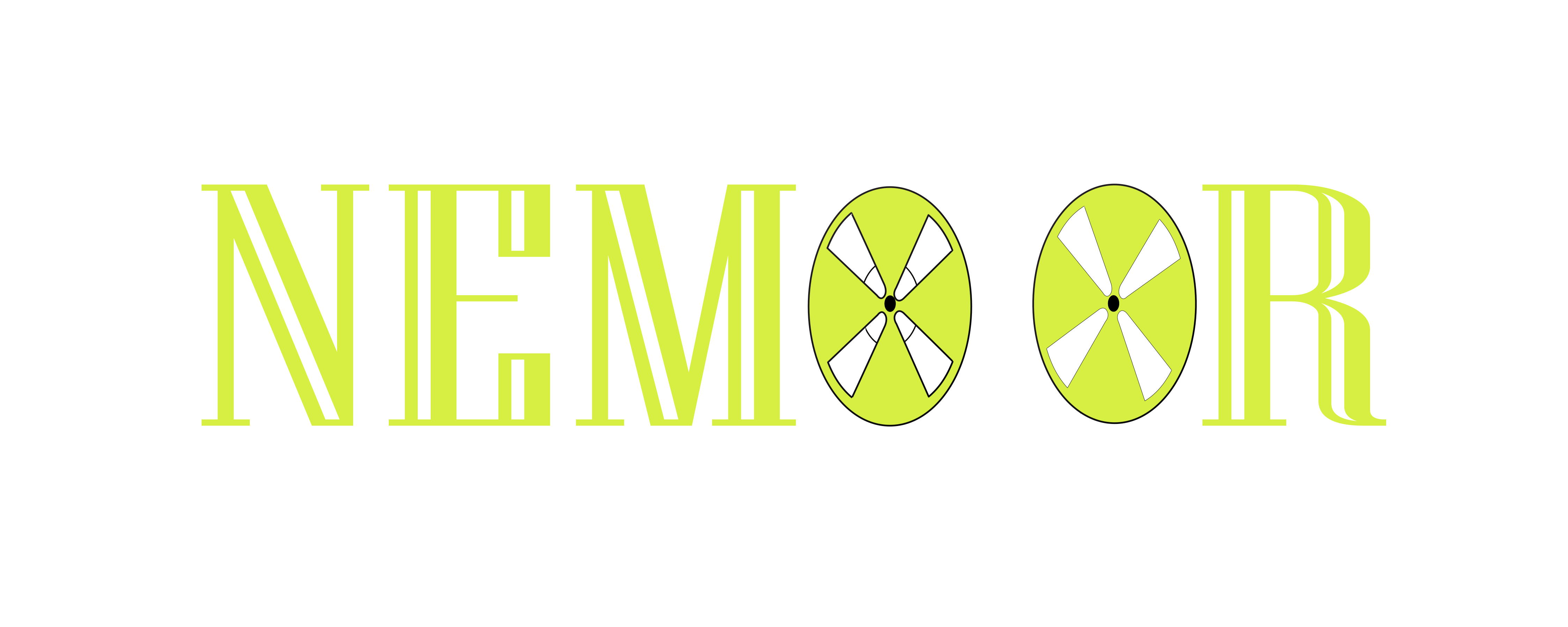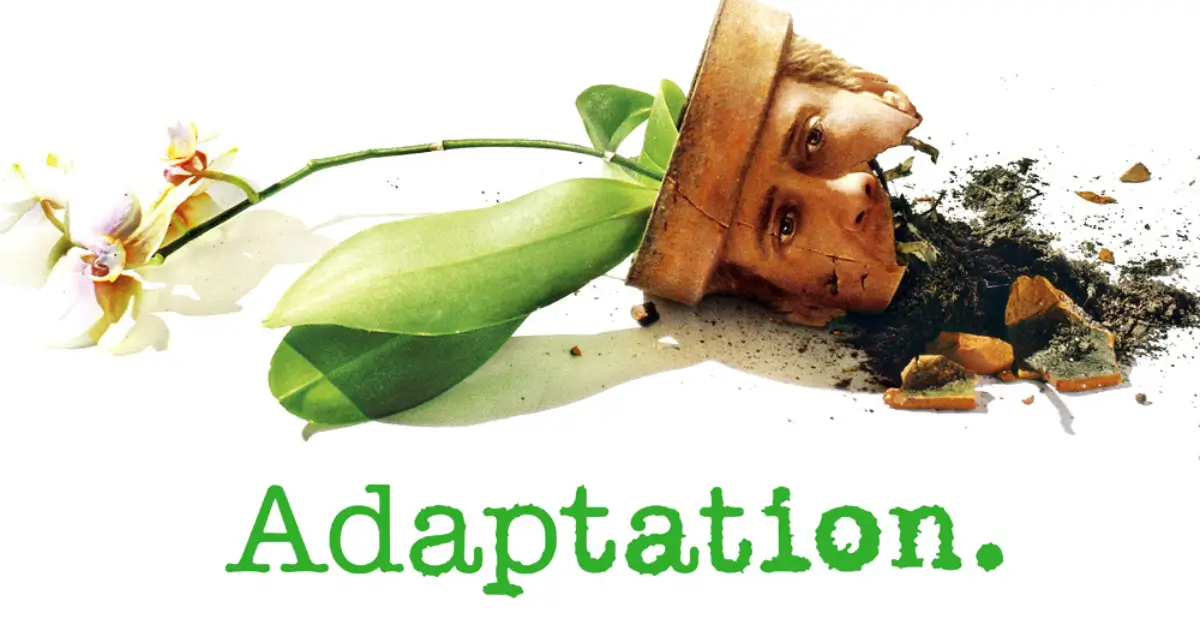In-Depth Analysis: Adaptation and Its Brilliant Portrayal of Creative Anxiety and Identity Crisis
How Spike Jonze and Charlie Kaufman created one of cinema’s most inventive explorations of writer’s block, imposter syndrome, and the fragmented self
Thank you for reading this post, don't forget to subscribe!Watching “Adaptation” is like experiencing a nervous breakdown and creative breakthrough simultaneously a meta-fictional journey into the anxious mind of a writer struggling with his own identity. This innovative film doesn’t just tell a story about creative anxiety; it embodies it through its very structure, blurring the lines between reality and fiction until viewers themselves question what’s authentic. Few films have captured the psychological torment of creative paralysis with such ingenuity, making it a landmark portrayal of mental health in contemporary cinema.
Basic Film Information
Title: Adaptation
Release Date & Production Year: December 6, 2002 (limited release in US)
Director: Spike Jonze (Following his critically acclaimed “Being John Malkovich,” also written by Kaufman)
Screenwriter: Charlie Kaufman and “Donald Kaufman” (A fictional co-writer who is Charlie’s twin brother in the film)
Main Cast & Characters:
- Nicolas Cage as Charlie Kaufman and Donald Kaufman (In a tour-de-force dual performance)
- Meryl Streep as Susan Orlean (The author of “The Orchid Thief”)
- Chris Cooper as John Laroche (The orchid poacher, who won an Oscar for this role)
- Tilda Swinton as Valerie Thomas (A film executive)
- Brian Cox as Robert McKee (The renowned screenwriting guru)
- Maggie Gyllenhaal as Caroline (Donald’s girlfriend)
Genre: Comedy-Drama/Metafiction
Awards won: Academy Award for Best Supporting Actor (Chris Cooper), BAFTA Award for Best Adapted Screenplay, numerous critics’ association awards
Runtime & Rating: 115 minutes, Rated R (for language, sexuality, some drug use and violent images)
Plot Summary
General Overview
“Adaptation” follows screenwriter Charlie Kaufman’s torturous attempts to adapt Susan Orlean’s non-fiction book “The Orchid Thief” into a film a task that seems impossible as the book lacks traditional narrative elements. As Charlie spirals into self-doubt and creative paralysis, his fictional twin brother Donald begins writing a commercially successful but artistically shallow thriller screenplay. These parallel storylines eventually merge with the story of Orlean and Laroche in increasingly surreal ways, culminating in a third act that deliberately embraces the Hollywood conventions Charlie initially wanted to avoid.
Mental Health Themes
The film powerfully depicts anxiety disorders, imposter syndrome, creative block, depression, self-loathing, and identity fragmentation. Charlie’s experiences highlight the paralysis that comes from perfectionism, the crushing weight of perceived expectations, and the existential terror of failing at the one thing that gives your life meaning. The character of Donald represents Charlie’s disowned aspects the parts of himself he both despises and secretly envies.
Key Turning Points
Several pivotal scenes highlight Charlie’s mental health struggles: his pathetic pitching meeting with Valerie Thomas; his masturbation scene that underscores his profound loneliness; his desperate visit to McKee’s screenwriting seminar; and his realization that he must include himself in the screenplay. These moments authentically capture how anxiety manifests not just internally but in self-sabotaging behaviors and creative choices.
Ending Analysis
The film’s conclusion deliberately descends into the Hollywood clichés Charlie initially scorned car chases, drug revelations, murder, and redemption while simultaneously commenting on its own surrender to convention. This meta-ending suggests that Charlie’s breakthrough comes from embracing rather than resolving his contradictions, finding truth within artifice, and accepting imperfection. It’s a perfect metaphor for managing rather than “curing” mental health struggles.
Setting & Cinematic Techniques
Filming Locations
The film shifts between the sterile writing environments of Los Angeles and the lush Florida everglades, creating a visual dichotomy between Charlie’s barren creative landscape and the vibrant world he’s failing to capture. This contrast visually represents his disconnection from authentic experience while lost in his own mental labyrinth.
Cinematography
Cinematographer Lance Acord creates distinct visual languages for different layers of reality. Charlie’s world is shot with anxious handheld movements and claustrophobic framing, while Orlean’s story initially appears more composed and traditional. As these realities bleed together, so do their visual styles, creating a disorienting effect that mirrors Charlie’s mental confusion.
Sound & Music
Carter Burwell’s score shifts from contemplative piano pieces during Charlie’s introspective moments to increasingly conventional thriller music as the film embraces Hollywood tropes. The sound design subtly emphasizes Charlie’s anxiety through amplified ambient noises during stress-inducing situations, placing viewers within his hyperaware, overstimulated mental state.
Acting & Character Portrayal
Lead Actor’s Performance
Nicolas Cage delivers one of his most nuanced performances, playing both Charlie and Donald with remarkable psychological precision. His portrayal of Charlie includes physical manifestations of anxiety hunched posture, nervous speech patterns, flop sweat, and avoidance behaviors that mental health professionals have praised for their accuracy. As Donald, Cage creates a character who is simultaneously Charlie’s opposite and his shadow self, representing both his creative liberation and his fear of mediocrity.
Supporting Cast
Meryl Streep and Chris Cooper create characters who exist in multiple realities as the real people they portray, as Charlie’s interpretation of them from the book, and as increasingly fictionalized versions in the screenplay’s evolution. This layered approach perfectly complements the film’s exploration of the blurry boundaries between reality and narrative.
Accuracy & Authenticity
The portrayal of creative anxiety and imposter syndrome is strikingly accurate, informed by Kaufman’s own experiences adapting “The Orchid Thief.” Charlie displays classic symptoms of generalized anxiety disorder, depression, and perhaps elements of obsessive-compulsive personality: catastrophic thinking, perfectionism, social avoidance, and creative paralysis. Mental health professionals have noted that the film captures the internal thought processes of anxiety with unusual precision.
Mental Health Representation: Strengths & Weaknesses
Psychological Accuracy
“Adaptation” achieves remarkable psychological accuracy by showing how anxiety distorts perception and self-image. The film illustrates how imposter syndrome creates a false narrative about one’s abilities, how perfectionism leads to creative paralysis, and how one can become trapped in recursive loops of self-criticism all mental health challenges common among creative professionals.
Stigmatization vs. Awareness
The film powerfully destigmatizes mental health struggles by presenting Charlie’s anxiety not as weakness but as the flip side of his artistic sensitivity and intelligence. By making viewers experience his tortured thought processes rather than simply observe them, the film creates empathy for those battling similar issues.
Impact on Public Perception
“Adaptation” has been particularly influential in normalizing discussions about imposter syndrome and creative anxiety. By showing a brilliant writer struggling with self-doubt, the film helped validate these experiences as common even among highly accomplished individuals.
Critical Reception & Awards
Critics’ Reviews
The film received widespread critical acclaim, with particular praise for its innovative structure and psychological insight. It holds a 91% rating on Rotten Tomatoes, with critics noting its brilliant meta-commentary on the creative process and mental health.
Audience Reactions
While some general audiences found the meta-fictional elements confusing, the film has developed a devoted following among creative professionals who recognize their own struggles in Charlie’s character. Many writers, artists, and filmmakers have cited the film as the most accurate portrayal of creative anxiety they’ve seen onscreen.
Awards & Nominations
Chris Cooper won the Academy Award for Best Supporting Actor, while Kaufman (and fictitious brother Donald) received an Oscar nomination for Best Adapted Screenplay a meta-joke in itself, as the screenplay extensively deviates from the source material. Nicolas Cage received a Golden Globe nomination for his dual performance.
Cultural & Social Impact
Discussions Sparked
“Adaptation” ignited important conversations about the creative process, particularly how mental health challenges both hinder and potentially enrich artistic work. It challenged the romantic notion of the tortured artist by showing the genuine suffering behind creative struggles.
Influence on Other Films
The film’s self-reflexive approach to storytelling and psychological states has influenced numerous subsequent works that blur the lines between fiction and reality to explore mental health themes, including films like “Synecdoche, New York” (written and directed by Kaufman himself).
Mental Health Advocacy
While not explicitly tied to advocacy organizations, the film has retrospectively been embraced by mental health professionals working with creative individuals for its nuanced portrayal of anxiety, imposter syndrome, and depression in the context of artistic work.
Personal Reflection & Final Thoughts
“Adaptation” provides extraordinary insight into creative anxiety by making the audience experience the tortuous thought processes of a writer questioning his own abilities and purpose. The film’s greatest achievement is creating empathy for a struggle that might otherwise seem privileged or self-indulgent, showing how debilitating anxiety can be even when not connected to material hardship.
I would particularly recommend this film to creative professionals battling self-doubt and to therapists working with such clients. For viewers currently experiencing severe depression or anxiety, the film might be both triggering and validating perhaps best watched when one has some emotional distance from one’s own struggles.
If anything could be improved, the film might have shown more explicitly how Charlie’s anxiety affects his interpersonal relationships beyond his professional life. While the focus on creative struggles makes thematic sense, a more rounded portrayal of anxiety’s impact across different life domains would have added additional depth.
Conclusion
“Adaptation” stands as one of cinema’s most innovative and accurate portrayals of creative anxiety, imposter syndrome, and identity fragmentation. Through Spike Jonze’s visionary direction and Charlie Kaufman’s brilliantly self-referential screenplay, the film transcends conventional narrative to create a profound psychological study that helps viewers understand the internal experience of creative paralysis and self-doubt. By turning writer’s block into art itself, the film offers both validation for those who struggle and insight for those who don’t.
What are your thoughts on this film’s portrayal of creative anxiety and imposter syndrome? Has watching it changed your understanding of the psychological challenges many artists and writers face? Share your reflections in the comments below.

